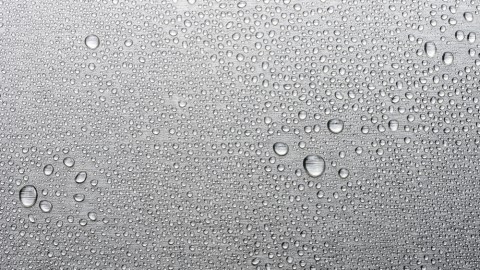‘Moist’ is One of Our Least Favorite Words, But Not Because of How it Sounds

I’m sure you heard it before: The word “moist” really rubs some people the wrong way. Maybe you cringed just now when you read it, or maybe you recoiled in horror, closed your browser, and moved as far away from your computer as you could. Sorry about that, but you’re not reading this anymore, so why am I apologizing to you? For those brave enough to continue (and to read the M-word at least a few more times), researchers from Oberlin College and Trinity University wanted to determine just what it is about the word that sets us off.
The researchers conducted three different experiments designed to determine whether our aversion was due to the sound of the word, the connotation of the word, or something else entirely. Surprisingly, the researchers ruled out phonetics as a significant cause of our moistophobia. But wait, the word just sounds inherently weird and grubby, right? How is the way it sounds not a key factor in our dislike of it?
Well, do you feel similarly about the words hoist, foist, and cloister? How about differently structured rhyming words, like voiced and oyster? Well, unless you have an understandable dislike of shellfish, it’s unlikely that any of those words rankle you. And that squares with what was found in the study: It’s the connotation of “moist,” not the aural qualities, that earned it the dislike of almost half of the participants. The word reminds us of what it might look like outside after a particularly heavy rainstorm. And, yes, it evokes images of a few different bodily fluids that I don’t need to go into details about. The particulars of the study offer plenty of those details; be warned that there’s some NSFW language.
The word “moist” reminds us of some pretty gross substances and situations, but there’s something else about the word that works against it: its reputation. Simply hearing others talk about their dislike of the word can be enough to cement a bias. It’s the type of thing that most people wouldn’t think about on their own, just as I didn’t, but once they hear the anti-moist argument, they’re inclined to say, “Yeah, you have a point.” Even if you don’t buy into it right away, the idea, in all of its vivid, grimy detail, is hard to shake.
And even if we can shake the idea that “moist” is an inherently gross word, maybe we don’t want to. Maybe it’s fun to bond with others over a silly opinion that we have in common. And so, the word “moist” is doomed for our hatred, and a bunch of restaurants should probably get to work on revising their dessert menus.
VisitFusion for more, and check out this video with the king of linguistics, Noam Chomsky, on the mysteries of languages. We didn’t ask him for his thoughts on “moist,” unfortunately.





